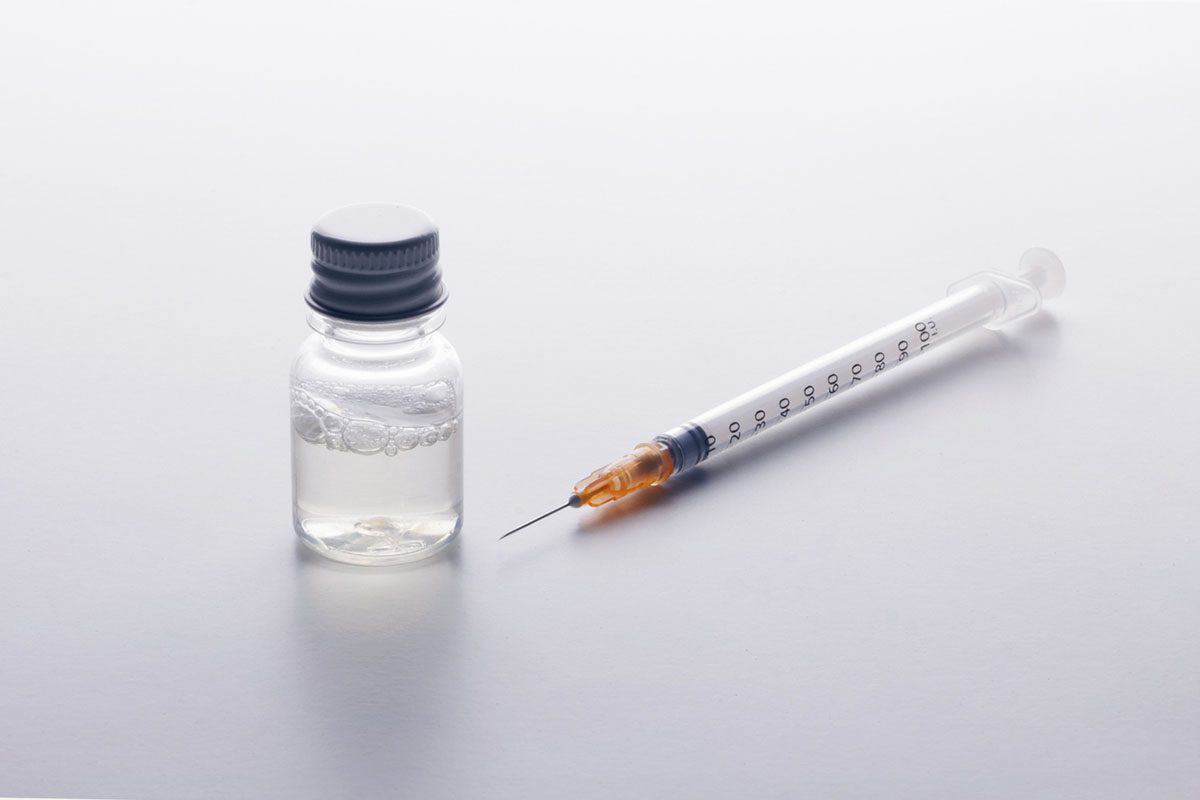Delayed Psychosis Induced by Bupropion in a Former Cocaine Abuser: A Case Report
To the Editor: Bupropion sustained release (SR) is an antidepressant with dopamine and norepinephrine reuptake inhibitor activity. Bupropion is structurally related to amphetamines and enhances dopamine neurotransmission through inhibiting neuronal dopamine reuptake. Bupropion-induced psychosis has been recognized in overdose,1 as well as after sustained-release bupropion administration2 and in the elderly.3 This report describes a patient who developed psychosis after she was prescribed bupropion for having a low energy level.
Case report. Ms A, a 47-year-old African American woman, was initially diagnosed in 2007 with DSM-IV mild recurrent major depressive disorder, posttraumatic stress disorder, and cocaine abuse (in early full remission). She started feeling depressed after her husband was diagnosed with cancer of the colon 7 months before the time of this report. She was hospitalized and started on escitalopram 20 mg and trazodone 50 mg qhs, as needed for insomnia.
Five months prior to this report, she came back to the clinic and reported significant improvement in her depressive symptoms; however, she still had a low energy level. She also had occasional flashbacks about the traumatic incidences of her boyfriend being shot in front of her and witnessing several relatives dying in a fire in the past. She reported still being withdrawn and not wanting to do anything, and she still had problems sleeping. Her dosage of trazodone was increased to 100 mg qhs prn, and she was started on bupropion SR 100 bid for having a low level of energy.
Two months later, on follow-up, the patient reported that she felt a lot better and had a good level of energy. She still had occasional flashbacks. She denied having depressive or manic symptoms, psychosis, paranoia, auditory or visual hallucinations, or suicidal or homicidal ideation at that time. Her sleep (with medication) was fine. Two months later and 4 months after starting bupropion, she came in for follow-up and reported that she was very paranoid, was not getting out of the house, had the constant feeling that people were watching her, was withdrawn, was confined to her home, and had started seeing shadows. She still had nightmares about her past abuse. We suspected bupropion-induced psychosis and discontinued the bupropion and started her on a low dose of paliperidone (3 mg qam). Two weeks after discontinuation of bupropion and starting low-dose paliperidone, Ms A’s condition significantly improved. She stopped seeing the shadows and denied experiencing paranoia or depression. The patient started leaving her home, although she was still to some extent reluctant to go out, and she still had occasional nightmares.
We hypothesize that the above-described psychotic episode was associated with the start of bupropion. Quick reversal of psychosis after discontinuation of bupropion supports the hypothesis that it was drug induced. Development of psychotic symptoms after bupropion initiation could be explained by the reuptake inhibition of dopamine. It is likely that the dopaminergic neurons are already damaged and sensitized in cocaine abusers and addition of bupropion will impair the functioning further. Our patient noted significant improvement in energy level for 1-2 months before developing psychosis, which occurred approximately 4 months after start of bupropion treatment. We do not have a good explanation at this time for why the patient developed delayed psychosis. However, it is likely that there is a lag period of sensitization of neurons in cocaine abusers after being sober. The patient reportedly has been sober during all of this period.
Reports regarding psychosis or delirium with psychotic features from bupropion treatment exist in the literature.4-7 It appears that bupropion-induced psychosis occurs primarily in patients with certain risk factors. Vulnerable patients include those with a history of psychosis or those who are taking other dopaminergic medications such as amantadine or levodopa. By blocking dopamine uptake, bupropion may cause dopaminergic overdrive and thereby precipitate psychosis.5 Psychosis appears to be dose dependent. Contemporary data indicate that a large number of patients benefit from bupropion; however, discontinuation of bupropion may be warranted in patients who develop psychosis after starting bupropion.
References
1. Wang TS, Shiah IS, Yeh CB, et al. Acute psychosis following sustained release bupropion overdose. Prog Neuropsychopharmacol Biol Psychiatry. 2005;29(1):149-151. PubMed doi:10.1016/j.pnpbp.2004.10.003
2. Neumann M, Livak V, Paul HW. Acute psychosis after administration of bupropion hydrochloride (Zyban). Psychiatr Prax. 2004;31(suppl 1):S140-S141. PubMed doi:10.1055/s-2004-828457
3. Howard WT, Warnock JK. Bupropion-induced psychosis. Am J Psychiatry. 1999;156(12):2017-2018. PubMed
4. Neumann M, Livak V, Paul HW, et al. Acute psychosis after administration of bupropion hydrochloride (Zyban). Pharmacopsychiatry. 2002;35(6):247-248. PubMed doi:10.1055/s-2002-36393
5. Johnston JA, Lineberry CG, Frieden CS. Prevalence of psychosis, delusions, and hallucinations in clinical trials with bupropion. Am J Psychiatry. 1986;143(9):1192-1193. PubMed
6. Hahn M, Hajek T, Alda M, et al. Psychosis induced by low-dose bupropion: sensitization of dopaminergic system by past cocaine abuse? J Psychiatr Pract. 2007;13(5):336-338. PubMed doi:10.1097/01.pra.0000290673.32978.e8
7. Golden RN, James SP, Sherer MA, et al. Psychoses associated with bupropion treatment. Am J Psychiatry. 1985;142(12):1459-1462. PubMed
Author affiliations: Department of Psychiatry, College of Medicine, University of Florida, Jacksonville (Dr Farooque); and independent contractor, Kansas City, Missouri (Dr Elliott).
Potential conflicts of interest: None reported.
Funding/support: None reported.
Acknowledgment: The authors thank Cara Mckee-Farooque, MS, for manuscript review and editing. Ms Mckee-Farooque reports no potential conflict of interest relevant to the subject of this letter.
Published online: October 7, 2010 (doi:10.4088/PCC.09l00943gry).
Prim Care Companion J Clin Psychiatry 2010;12(5):e1
© Copyright 2010 Physicians Postgraduate Press, Inc.





